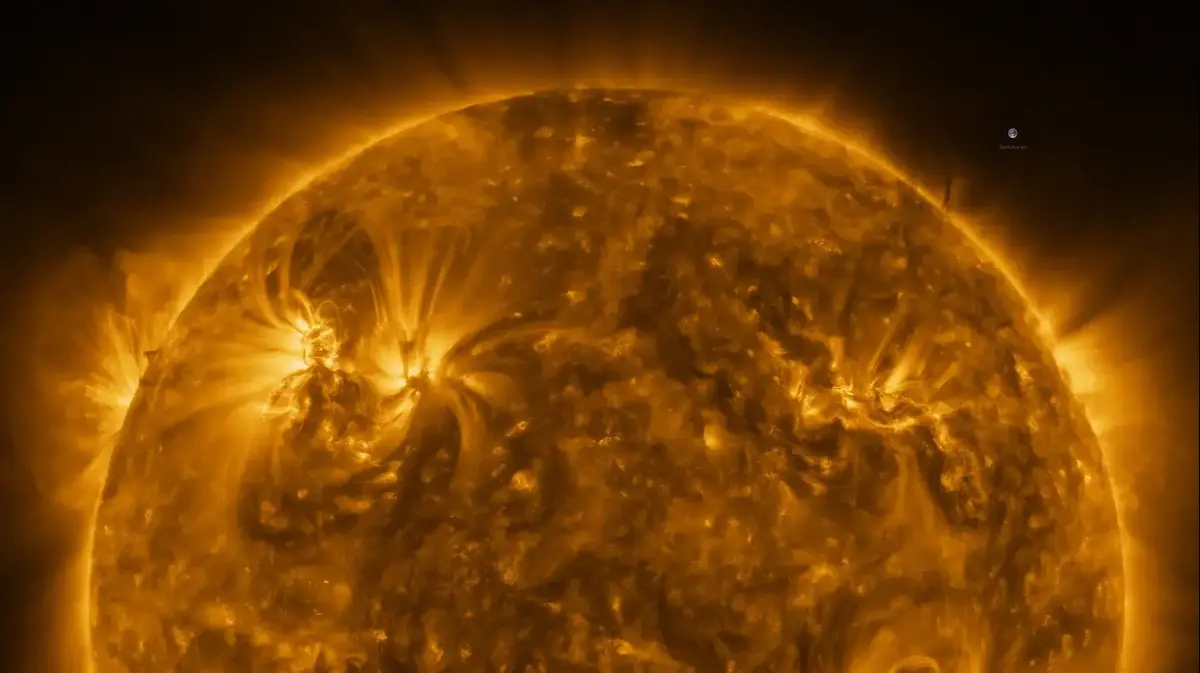Terrifying: What will happen to the earth when the sun swallows the planets?
When stars the size of the Sun lose the hydrogen gases from their cores, they become ten times more massive than their original size.
The Earth may survive, but will be so charred that it will become completely uninhabitable
Voila system!
technology
26/08/2022
Friday, August 26, 2022, 08:53 Updated: 15:41
Share on Facebook
Share on WhatsApp
Share on Twitter
Share by email
Share in general
Comments
Comments
The sun in high resolution (photo: ESA & NASA/Solar Orbiter/EUI team; Data processing: E. Kraaikamp (ROB))
Will one day the sun swallow the planets near it and lead to the earth not being a suitable place for human life?
It may sound like an unrealistic horror scenario, but unfortunately it may happen - in the very distant future.
It has been known for years that when the day comes, the sun will expand to become a red giant and swallow the planets near it.
Now, a new study tries to examine what will be the effect on the planets that will be devoured by the sun and how the phenomenon will affect the earth.
When stars the size of the Sun lose the hydrogen gases from their cores, they become ten times more massive than their original size.
The study found that engulfing large planets, 10 or more times the size of Jupiter, can cause the star to shed its mantle and increase in brightness over several thousand years.
The research was conducted using a method called hydrodynamic simulations, and provides a glimpse into the possible future scenarios of the development of our solar system.
Due to the enormous size of red giant stars, the researchers had to sample only a small section of the boundary where the stars meet the planets.
"We simulate a small section of the star to understand the flow around the planet and measure the drag forces acting on it."
The Earth may indeed survive, but it will be so charred that it will become completely uninhabitable (photo: official website, NASA)
So says Ricardo Yarza, a graduate student in astronomy at the University of California, Santa Cruz, and lead author of the study published in the Astrophysical Journal.
The results of the study provide a glimpse of what will happen in 5 billion years when our sun turns into a red giant and how the phenomenon will affect us.
In our solar system, the planets closest to the sun are Mercury and Venus.
These two stars are expected to be completely swallowed by the growing Sun.
The Earth may survive, but will be so charred that it will become completely uninhabitable.
Some of the colder and more distant planets, such as Jupiter, Saturn and their moons, may develop conditions more friendly to life.
So will humanity one day be forced to move to these planets or will it be destroyed?
We will wait to see what happens in billions of years.
More in Walla!
A good drive: the most cost-effective way to purchase a car
in collaboration with max
technology
Tags
the sun
Earth




/cloudfront-eu-central-1.images.arcpublishing.com/prisa/PA5TT2ZCYBDNLEAREMUPESRVOM.jpg)



/cloudfront-eu-central-1.images.arcpublishing.com/prisa/TQ73US57UFGWTIXR7C3BS2OTIA.jpg)





